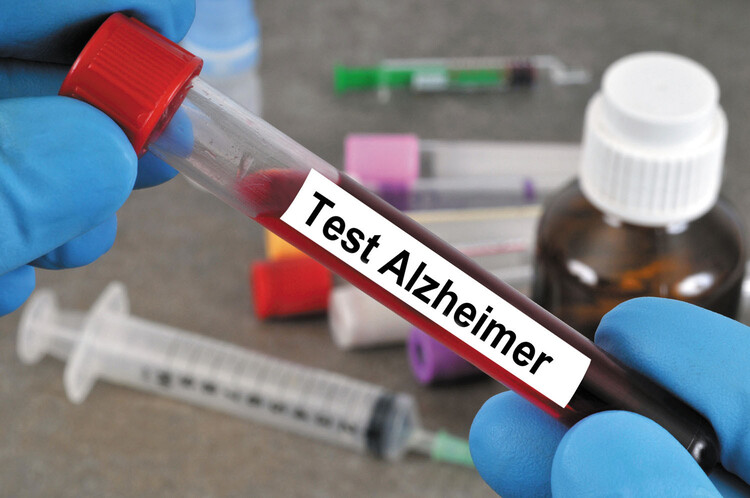Revolutionary Blood Test for Alzheimer’s Disease Revealed
A recent study has unveiled that a simple blood test can detect Alzheimer’s disease with 91% accuracy, surpassing traditional diagnostic methods. Published on July 28 in JAMA and presented at the Alzheimer’s Association International Conference, this study marks a significant advancement in creating an affordable and straightforward test for a condition affecting nearly 7 million Americans.
“These findings could greatly impact individuals seeking help for memory loss and suspected Alzheimer’s,” stated Dr. Oskar Hansson, a professor of neurology at Lund University in Sweden and a study author.
Diagnosing Alzheimer’s Through a Blood Test
In a groundbreaking study, researchers examined 1,213 Swedish patients, averaging 74 years old, who exhibited mild memory symptoms, a potential early indicator of Alzheimer’s. The participants included 515 patients from primary care and 698 from specialist memory clinics. They were tested with a new blood test, and the results were confirmed through cerebrospinal fluid tests, which can indicate Alzheimer’s disease.
The blood test measured levels of plasma phosphorylated tau 217 (p-tau217) and amyloid beta, proteins associated with Alzheimer’s. The blood test’s accuracy in identifying Alzheimer’s was approximately 90%, compared to 61% accuracy from primary care doctors and 73% from specialist physicians.
Researchers highlighted that the blood test’s simplicity and reliability make it a significant advancement in diagnosing Alzheimer’s. It offers a non-invasive method to rule out the disease in primary care, reducing the need for extensive screenings and tests. This could facilitate quicker and easier diagnosis, allowing patients to better prepare for their future.
However, researchers cautioned that since the study was conducted in Sweden, the results need confirmation in a diverse American population. The blood test should be used only for individuals already showing symptoms of cognitive decline or memory loss, not for predicting Alzheimer’s in healthy individuals.
“The next steps include establishing clear clinical guidelines for the blood test’s use in healthcare,” said Dr. Hansson. The test is already available in the USA and is expected to become available in other countries soon. Initially, it will be used in specialist memory clinics, with guidelines and training for primary care expected within one to two years.
Existing Ways for Diagnosing Alzheimer’s
Doctors currently employ a variety of techniques to diagnose Alzheimer’s disease and other potential causes of cognitive or behavioral changes indicative of neurodegenerative diseases.
Diagnostic Techniques
- Medical History: A detailed review of the patient’s medical history, including medications, family history, and social history.
- Neurologic Exam: Comprehensive neurologic examination.
- Neuropsychological Testing: Varying degrees of cognitive testing.
- Blood Tests: To assess reversible causes of cognitive changes.
- Brain Imaging: Techniques such as MRI scans.
- Advanced Imaging: In some cases, PET scans or spinal fluid tests to detect biomarkers like beta-amyloid and tau proteins.
Limitations and Future Directions
Despite the groundbreaking nature of the new blood test for Alzheimer’s, it is not intended to replace the comprehensive diagnostic process currently in use.
Joel Salinas, MD, Clinical Assistant Professor of Neurology at NYU Grossman School of Medicine, highlights that while the blood test is promising due to its less invasive nature and accessibility compared to spinal fluid tests, it should not be the sole diagnostic tool.
- Benefits: The test can help guide who would benefit from advanced imaging studies, optimizing clinical resources.
- Accuracy: The new test is most accurate in patients who have already progressed to dementia or mild cognitive impairment and is less accurate in early stages of cognitive decline.
Further research is needed to establish clear guidelines for the blood test’s use and to determine its role in improving treatment outcomes.
Future Implications for Alzheimer’s Disease
Alzheimer’s disease significantly impacts many lives, with one in five women and one in ten men affected over their lifetimes. Symptoms often go unnoticed for up to 20 years, underscoring the need for routine screening and further research for early detection.
According to Kaitlin Seibert, MD, Assistant Professor of Neurology at the University of Chicago Medicine, clinicians need to establish a pipeline for quick diagnosis and management of mild cognitive impairment and mild Alzheimer’s dementia. She emphasizes the importance of identifying patients for further testing, as amyloid protein can be present in the brain without clinical symptoms for years.
Currently, the new blood test is available for use by healthcare providers but not directly to consumers. Joel Salinas, MD, Clinical Assistant Professor of Neurology at NYU Grossman School of Medicine, advises individuals interested in the test to consult their healthcare provider to determine its appropriateness based on symptoms and medical history. He stresses that the test should be part of a comprehensive diagnostic process rather than used in isolation. As research progresses and guidelines are established, the test may become more widely integrated into standard diagnostic practices.
Early diagnosis of Alzheimer’s is crucial for planning and managing the condition, impacting long-term health, aging, and quality of life. Seibert highlights the importance of loved ones seeking care if they notice significant memory changes, such as forgetting entire conversations, repeating questions, or misplacing items. Early detection and management rely on close and caring attention from friends, family, and close contacts.
Summery
A recent breakthrough in medical research offers new hope for individuals with Alzheimer’s disease. Scientists have developed a blood test that can accurately detect the presence of Alzheimer’s with an impressive 91% accuracy rate. This significant advancement surpasses traditional diagnostic methods, which often involve complex and invasive procedures.
The new blood test analyzes specific proteins associated with Alzheimer’s disease, including amyloid-beta and tau proteins. By measuring levels of these proteins in a blood sample, researchers can identify individuals with the disease with remarkable precision. This non-invasive approach holds the potential to revolutionize how Alzheimer’s is diagnosed, making it more accessible and efficient.
In comparison, traditional methods for diagnosing Alzheimer’s often involve a combination of cognitive tests, brain imaging studies, and even spinal fluid analysis. These procedures can be time-consuming, expensive, and sometimes uncomfortable for patients. The new blood test offers a promising alternative, providing a simpler and more accurate way to detect the disease.
Early diagnosis of Alzheimer’s is crucial for effective management and potentially slowing down disease progression. With a more accessible diagnostic tool, it is hoped that more individuals will be able to receive timely treatment and support. However, it’s important to note that further research is needed to fully understand the implications of this blood test and to establish clear clinical guidelines for its use.
This breakthrough underscores the ongoing progress in Alzheimer’s research and brings renewed hope for improving the lives of millions affected by this devastating disease.




